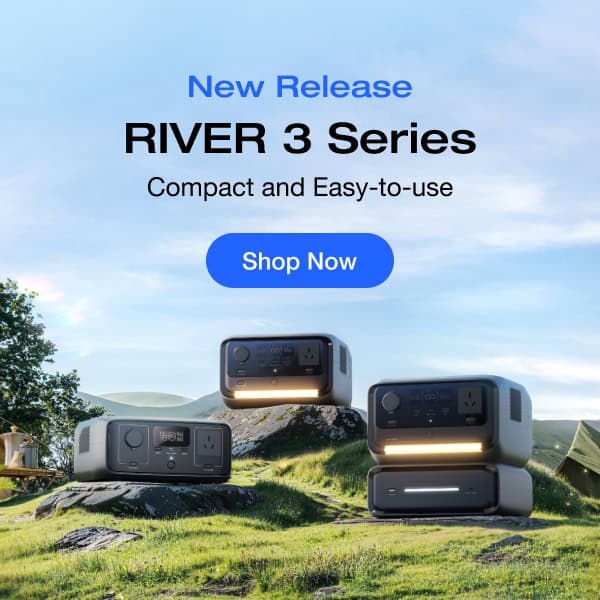Table of Contents
Converting a van to four-wheel drive (4WD) is an enticing idea for anyone wanting to take their vehicle off-road to explore new adventures. While possible, the conversion requires significant mechanical skills, often involving replacing the front suspension and drivetrain and tricky wiring adjustments.
Not all vehicles are suitable for conversion, at least not at a reasonable price, so research is essential beforehand. This article will examine some of the challenges and factors you should consider before beginning the project.
Let’s get started.
Understanding the Challenges of Converting a Van to 4WD
We all love travelling in our van, exploring the open road, and seeing where the adventure takes us. If you already have a 2WD van, you have likely come across limits to your ability to explore. So, naturally, we wonder whether or not we can convert our vehicle to four-wheel-drive.
However, before you start disassembling it, it’s important to understand the challenges involved.
Depending on the vehicle, it can take a lot of work. Often, the front suspension has to be replaced completely, especially with independent suspensions to make room for the front dif and axles, which can require a lot of welding. If you are experienced, it can be a fun, doable project, but for those without the skills it could be a serious obstacle.
Solid axles are easier to work with but still involve replacing a large part of the drivetrain and suspension. One of the easiest ways is if you have a 4WD written off for body damage, but the drivetrain and suspension are still good. With an identical model in 2WD, it’s easier to swap out the necessary components.
Still, you may have different mounting points for the transfer case. Furthermore, the electronics can be tricky to work with, even under the best circumstances.
What Factors Should You Consider Before Converting a Van to 4WD?
Mechanical Skills
Mechanical skills are a must if you plan to do the conversion yourself. Sure, you can watch how-to videos online, but it will be an uphill battle.
Parts Availability
Finding compatible parts becomes much more challenging if the manufacturer has never offered your van model in a 4WD. If this applies to you, spend some serious time researching the parts and looking online to see if others have successfully converted your model and what they used to make it work. It can save you a lot of time and money.
You also need a power source when adventuring off-road for more than a day. The generator size you need will depend entirely on your energy needs. For instance, if you have basic electronic devices and LED lights, your power needs will be much lower than if you want to run AC, a fridge, and other appliances.
Fortunately, you have some great options. The ultra-quiet EcoFlow DELTA Max provides plenty of power for multiple appliances and is safe to use inside your vehicle. For extended trips, bring EcoFlow 220w portable solar panels so you can recharge your power station with clean energy from the sun.
Cost
The cost of a conversion can vary enormously depending on the vehicle and parts and whether or not you need to hire help. For instance, the conversion cost can be anywhere from $2,000 to $37,000. Buying a used 4WD vehicle might be cheaper for those without the skills or timer.
Time
Like cost, time can also be critical because conversions take a lot of work. If you have the skills and time, it can be fun, and you will end up with something you feel proud of. On the other hand, if you lack the time and try anyway, it may collect dust and take up space in your garage.
Size
It can be tempting to find the largest van for comfort, but keep in mind that the larger it is, the less maneuverability it has and the poorer it handles driving both on and off-road.
Other interior considerations include insulating your vehicle to help protect against the heat and cold and installing floors and walls.
You also need to consider heating and cooling options, which can be built in or done via the portable options. The EcoFlow Wave 2 Portable AC is a portable, solar-powered AC to keep you cool on hot days. It doubles as a heater for cold nights, so no need for multiple appliances.
Camping Options
If you want to convert your van, you probably want to camp with it, so consider how you will alter it for off-road living. For instance, decide whether or not you want a kitchen and toilet indoors, as those must be factored into the interior design since they will need water supply and storage, all adding significantly to the cost and complexity.
Outdoor kitchens and bathrooms require set-up and take-down but offer easier and much cheaper solutions. Building a platform in the back is also a popular idea for your bed so you can store all your gear underneath it.
Another power option is the EcoFlow Smart Generator, which takes petrol and propane if you want to use the fuels you might already be carrying. This model is far more efficient, portable, and quieter than traditional generators.
Finally, for those going on long adventures, the EcoFlow Glacier Portable Refridgerator is a must. It comes with a fridge and freezer compartment and a built-in icemaker, all in the size of a standard cooler. This will easily fit in your van and keep your food fresh longer.
What are the Benefits of Converting a Van to 4WD?
The most obvious benefit is that 4WD vans are better for off-roading on rough terrain, something that 2WD doesn’t do well. For those who like to get off the beaten path, travelling on decommissioned roads, in sand or mud, a 4WD is often the only way.
Also, depending on where and when you travel, if you drive in winter and happen to encounter snow or ice, that is another area where the 4WD really shines. In those conditions, a 2WD vehicle typically has very poor traction, especially those with rear-wheel drive or on any steep terrain.
When Converting to 4WD Might Not Be Worth It
The age and condition of your van are important considerations. If your vehicle is aging and needs multiple repairs, you need to factor in those costs. Also, research your exact year, make, and van model to see if others have successfully converted them. Models that have never been designed as 4WD by the manufacturers are known to be more challenging due to a lack of available parts.
You should also weigh your need for a 4WD against the cost. Do you really need one, or do you just think it might be fun to have one? A 2WD van can handle most unpaved roads as long as they are dry and not too rough. If that is the extent of your off-roading adventures, the conversion cost may not be worth it.
For those who do a lot of driving and don’t want to pack a generator or fuel, you can also charge your devices while driving. The EcoFlow 800W Alternator Charger is designed to charge a power station up to 8 times faster than without. This means you can have it recharged even on a short drive and not have to risk draining your battery while you are parked or have to leave your vehicle running, using up all your petrol.
Frequently Asked Questions
Yes, you can convert a van to 4WD. However, research your make, model, and year to see if others have successfully done it, as not all vans are suitable for conversion. Some require a lot of fabrication to make it work, and that can get very expensive.
Final Thoughts
In the end, converting a van to 4WD is a major undertaking that requires careful consideration of cost, time, parts availability, and mechanical skills. While the benefits of enhanced off-road capability are clear, the effort and expense may outweigh the advantages for some people.
For those determined to explore off the beaten path with your own mobile 4WD home on wheels, the rewards of a successful conversion can be immense. Don’t forget your EcoFlow DELTA Max to keep all your devices going with you.


